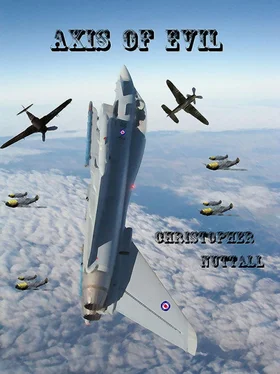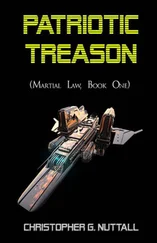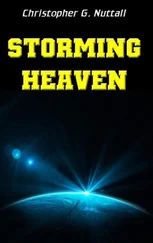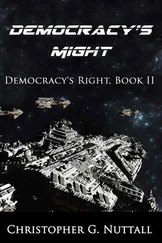He scowled. “I’m sure I don’t have to remind you of what happened the last time someone tried this,” he said. “I was there; many of you will have only read about it in history books.” There were a few grim chuckles. “We cannot get stalled; we have to get the Germans out and the Turks out, before they can muster a counterattack.
“The second prong will be landed at the end of the Gallipoli peninsula,” he said. “That’s the main attack force; the Marine division and the modern Army units. They are going to drive to Istanbul, while the fleet clears the passage through the Gallipoli peninsula. Once the fleet sails up to Istanbul, they can surrender and join us, or we’ll reduce their city to rubble.”
* * *
HMS Warspite shuddered slightly as her engines came to life, pushing her away from Crete. She hadn’t been docked on the large island, but some of her crew had been allowed shore leave; the Germans hadn’t attempted to toss them back off Crete.
“This is going to be tricky,” he muttered, as the fleet slid through the warm waters of the Aegean Sea. “All this way, on the advice of a damned German.”
“One of their better generals,” Tom pointed out. He passed Somerville a mug of coffee. “We can do this.”
“Never doubted it,” Somerville said. “Given whatever’s going on in America, we have to move quickly, before the Germans take advantage of the confusion.” He scowled. “It’s just the last part of the plan I’m worried about; if we cut off the Germans, they might decide to fight to the end.”
Over Turkey
26 thJune 1941
Dusk was falling over Turkey as the Harrier jump jet crossed the coastline, heading towards Konya. The Germans were moving an armoured division north, taking it back to Greece, and at the rate it was moving it might be too close to the attack point for comfort by the time the Marines went in.
Flying Officer Mick Eccleston checked the scope as the Harrier swooped high over mountains and fields, where Turks laboured under German semi-control. There was no sign of airborne opposition; HARM missiles had already been launched against the handful of German radar sets. Eccleston frowned; the daily information briefings warned that the Germans were constantly improving their sets, even if they were nowhere near the capabilities of a British set from 2015.
Bastards must have moved onto transistors by now , he thought grimly, as the dark German vehicles came into view. Puffs of black smoke appeared below him as the German anti-aircraft vehicle began trying to bring him down; he started evasive action, just in case. Losing a Harrier to such a piece of clapped out junk would be embarrassing.
“Control, launching FAE bomb now,” he said. The Germans had no counter to the bomb, even though they were very aware of what it could do; the men abandoned their vehicles and ran, not fast enough.
“Bomb detonation,” he said, as the wave of fire blasted out over the massive German force. The Harrier jumped forward as the weight of its first bomb was removed, he came around to see if the second bomb was required. Some German vehicles had survived. “Launching second bomb now.”
“Good work, Eagle,” the AWACS said. “Permission to return to the tanker.”
“Thank you, control,” Eccleston said. “Returning now.”
Gallipoli Peninsula
27 thJune 1941
The water was icy-cold near ANZAC cove, where an Austrian force had come to grief twenty-four years ago. The darkness would blind German and Turkish sentries, but the black suit Corporal Tom Williams wore contained night-vision gear that was literally decades ahead of anything the Germans might have deployed. He pulled himself out of the water, admiring how the suit changed colour to match its surroundings, and tapped his radio, sending a single burst back to the submarine.
Am ashore , it read.
Carefully, he pulled himself up the rocks and peered over onto the main peninsula. An infrared scan revealed no humans nearby; he slipped neatly across the peninsula without seeing anyone, finally reaching high ground and a German lookout point, on top of a small hill.
Idiots , he muttered, as he slipped closer. There were only two Germans present; one asleep, the other playing endless games of cards. He shrugged; Gallipoli probably wasn’t as important as the Middle East, or Norway, but surely the Germans could have spared some better men for the task of guarding it. The awake German spun around as he slipped into the lookout, but never made a sound as Williams shot him with the silent needle gun. The asleep German never woke up as his throat was being cut.
“I’m on the lookout point,” he subvocalised, picking up one of the German hats and placing it on his head. As long as he looked German in the darkness, they wouldn’t notice that his binoculars were hardly German standard-issue, but something far more complicated. With infrared sensors, picking out the positions of the German and Turkish positions was easy.
“Understood,” the commander said. “We’re sending in the rest of the team now.”
Williams watched as more dark-garbed men slipped up onto the peninsula, spreading out. Dawn was threatening to arise, and with it the Germans would become more alert. Quickly, he returned to watching the Germans, plotting out their positions and…
“The Admiral has given the order,” the commander said. “Have you targeted everywhere?”
“Yes, sir,” Williams subvocalised.
“Air strike inbound,” the commander said. “Get down and stay down.”
* * *
Captain Bertha Demimonde, RAF Reserve, sniggered to herself as the flight of converted cargo planes headed across the Aegean to Gallipoli. Unlike many others from Britain, she was enjoying the strange new world after the Transition, and her recall was a delight. Her plane, a cargo craft had had been used to deliver goods to Europe, had been converted into a bomber – it now carried twenty JDAMs.
“Bomber group, targets are being designated now,” the AWACS said. Electronic signals flashed between the group, designating targets for the bombers; only two of her JDAMs were assigned to targets.
“Understood,” she said, glancing out of the window. She’d never visited Turkey; Gallipoli didn’t look like much to her, just a muddy-brown strip of mountains and hollows. In the dawn, there was very little to see from her height.
“Bombs away,” the AWACS said. Two of her JDAMs fell on their command, laser-guided weapons heading down to Gallipoli. She watched; explosions flickered among the mountains. The tip of the peninsula had been designated for the single MOAB; that explosion was massive even from her distance.
“I guess that they’ll be complaining that we remodelled it,” she muttered, as she put the transport into a holding orbit. As new targets appeared, her weapons would be deployed automatically. It was a strange way to fight a war.
* * *
Admiral Somerville gasped as the MOAB struck the peninsula. The explosion was awesome; he thought that the entire peninsula would be destroyed for a long chilling moment. It was hard to imagine that anyone would have survived; the sudden disappearance of some of the telemetry indicated that some of the SBS hadn’t been lucky.
“Sir, we lost three of the troopers,” Tom reported. “The others are providing coordinates for follow-up strikes.”
“Order the planes to continue the attack,” Somerville said. It was astonishing; Warspite’s main guns couldn’t deliver such a battering. For the first time, he truly grasped that the era of the battleship was over. “What about the Marines?”
Читать дальше












